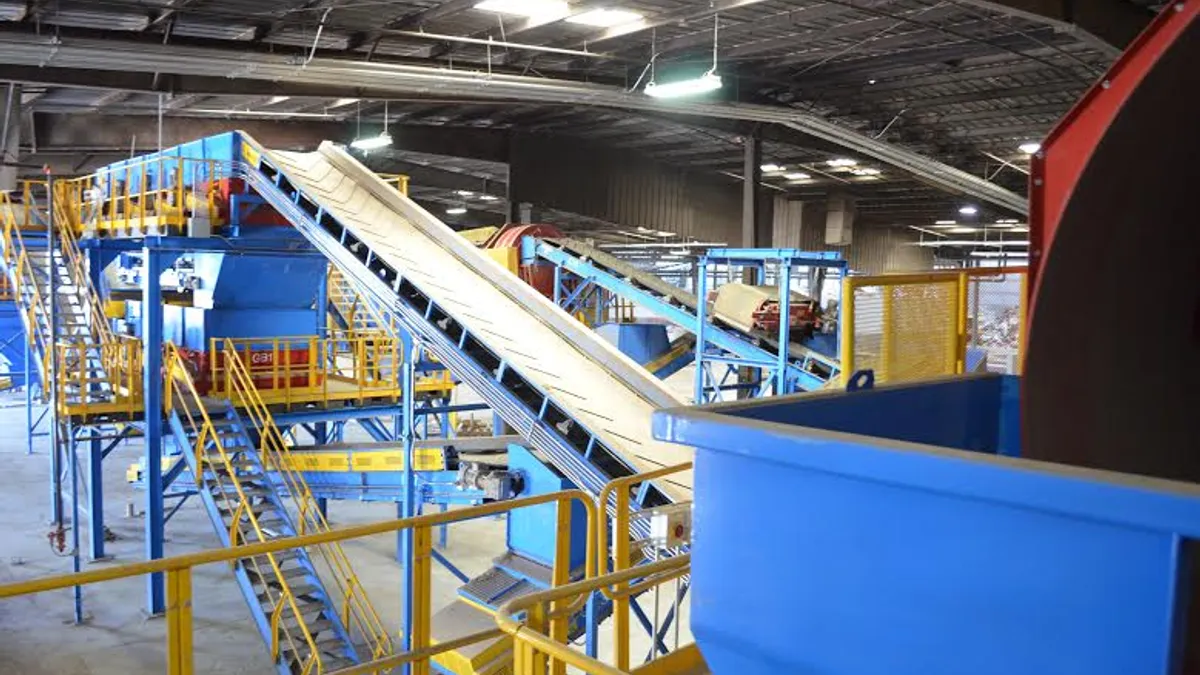Dive Brief:
- California’s rePlanet, the largest recycler in the state and partner to the region’s major grocery chains, has closed 191 recycling centers and terminated nearly 300 employees — meaning some smaller communities, such as Calaveras and Nevada Counties, no longer have drop-off sites for cans and bottles.
- The far-reaching center shutdowns are due to plummeting values of aluminum and plastic as well as increased overhead from health insurance and a raised minimum wage, according to the company as reported by Capital Public Radio. rePlanet will still operate 350 recycling centers, which provide jobs to 800 California residents.
- At its existing sites, residents can redeem cash for bottles, or donate their refund to charitable causes. Down the line, the bottles are made into aluminum and PET packaging used by restaurants, grocery stores, and other food service niches.
Dive Insight:
California will take a hit from the shutdowns, especially in the four cities that rank among the nation’s top five recyclers. The facility closures come months after four state bills were signed into law that were intended to boost infrastructure, including one to support businesses on the purchases of recycling equipment.
rePlanet still has a presence, though, with a few hundred plants running, some on "full steam." The organization’s Rancho Cucamonga center alone runs two eight-hour shifts a day, five days a week, and single eight-hour shifts the remaining two days, achieving throughputs of up to 11 tons per hour.
The company’s financial struggles, which will ratchet down production and completely eliminate its work in some areas, are largely attributed to declining oil prices, according to Mark Oldfield with the California Department of Recycling and Recovery.
"With this tremendous reduction in the price of oil, it's made virgin plastic, which is made out of petroleum product much more competitive with recycled plastic, and that's caused the decline in the market value of recycled plastic," Oldfield said.














